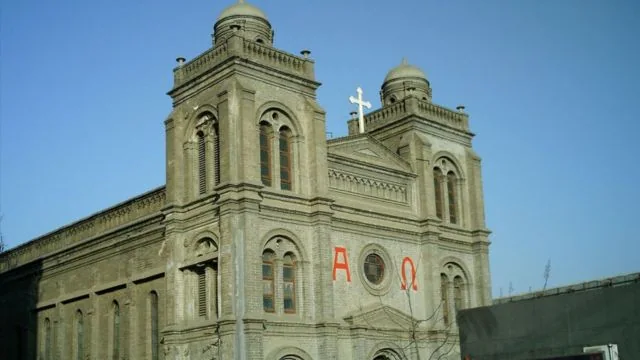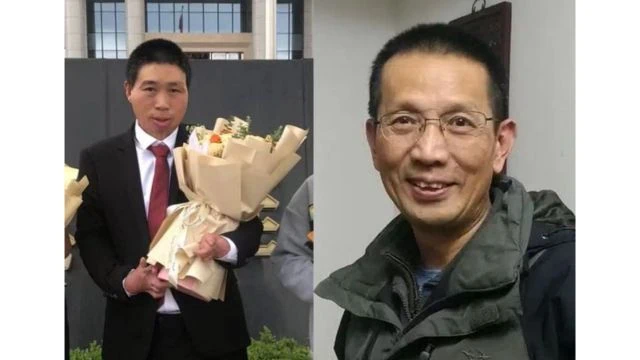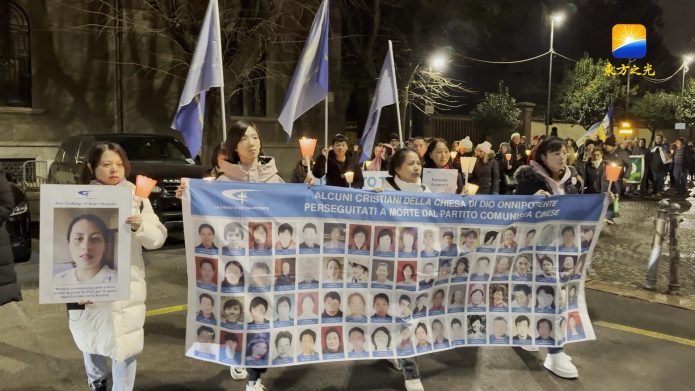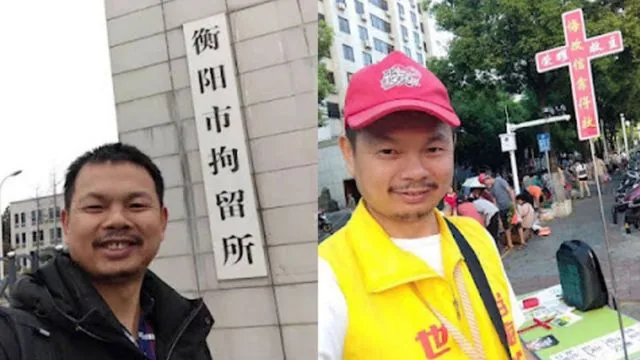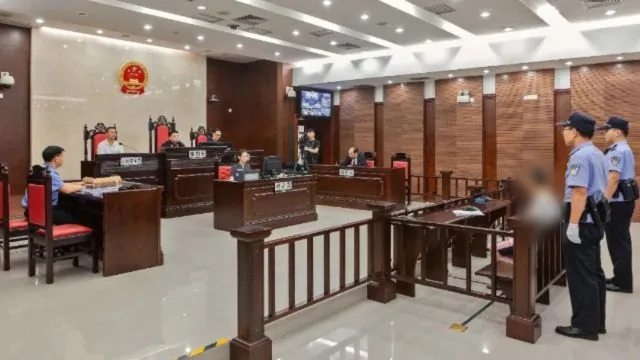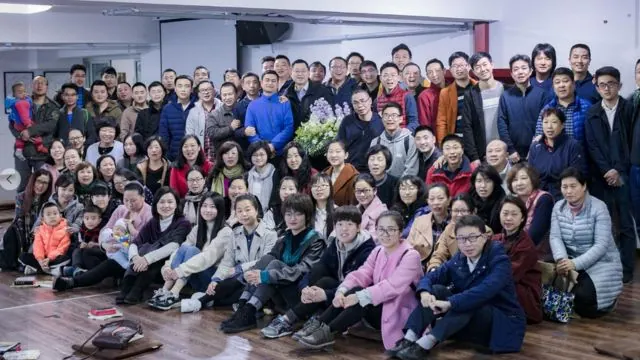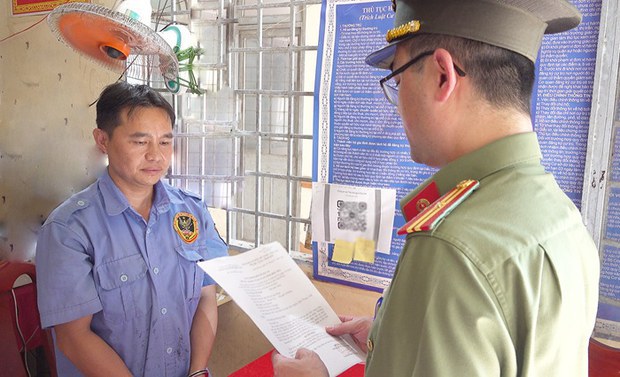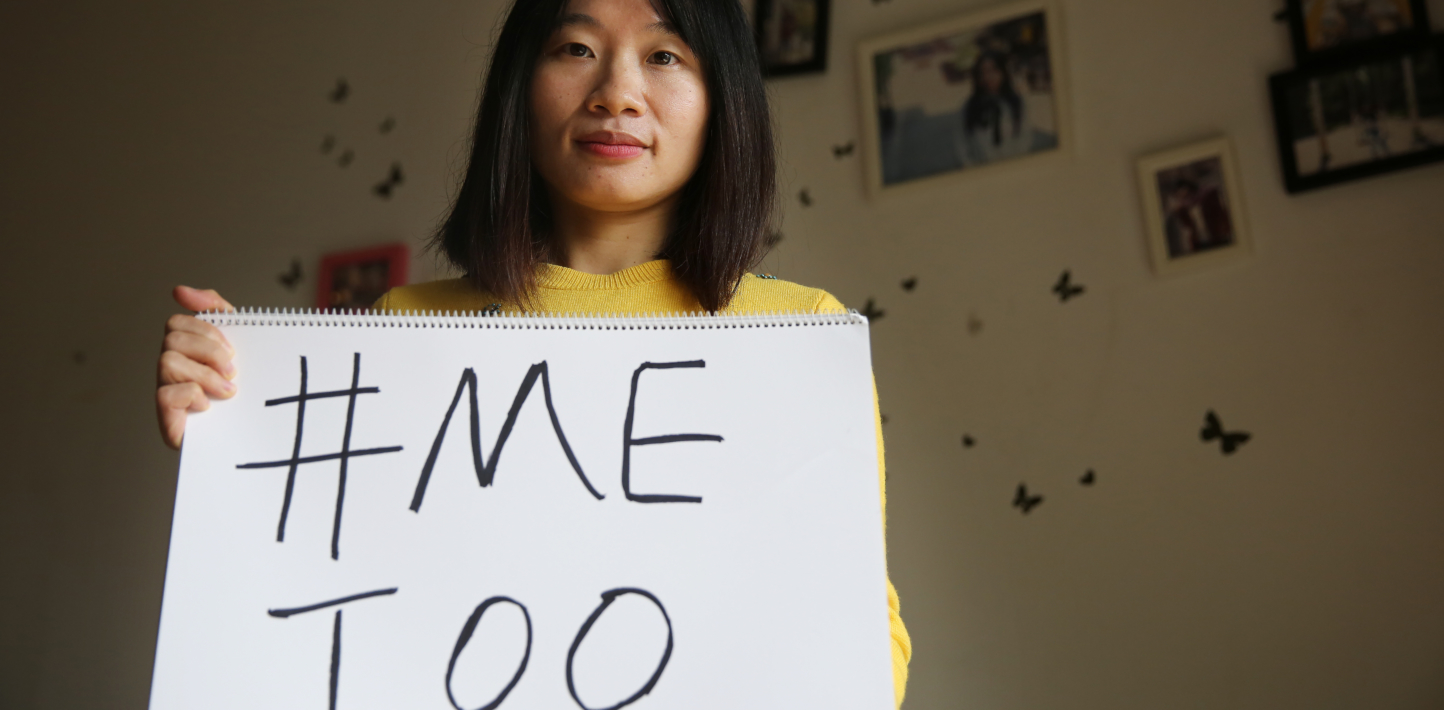We publish a short comment and a translation of the new and more restrictive Order no. 23 published on April 1 by the State Administration for Religious Affairs.
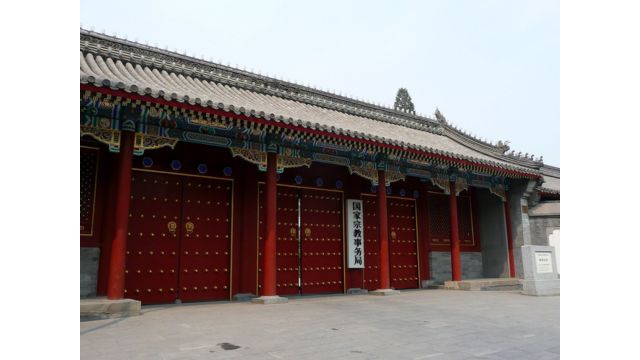
On April 1, the State Administration for Religious Affairs published its Order no. 23, which offers a new comprehensive regulation of the religious activities of foreigners in China.
Most of what is included in Order no. 23 confirms provisions that were already in force, dispersed through a variety of regulations. The general principle of China’s management of religion is that the only legal religious activities are those managed by the five authorized religions under the control of the United Front Working Department. The government-controlled religions are by definition “autonomous,” meaning they should not have regular relations with foreign entities. Religious activities by foreigners in China, unless they are part of official delegations invited by the CCP-controlled religious bureaucrats, the United Front, or the Party for public relations or propaganda purposes, are viewed with hostility, generally discouraged, and strictly regulated.
Perhaps because of visits of Christians from the Chinese diaspora or other Asiatic countries, or exchanges between Buddhist and Taoist temples in China and outside the country which are not organized by the official bureaucrats, the new regulation puts together all the existing norms to make their enforcement easier. While not much if new, if anything the new regulation includes more detailed and strict provisions on how any request (admissible only of coming from the five authorized religions) to invite a foreigner to conduct a religious activity should include a lot of documents and be approved by the authorities well in advance. Retreats and other religious activities that sometimes foreigners organize in Chinese temples, although they are a source of touristic revenue, should also be pre-authorized and supervised by a representative of the relevant authorized religion.
Bringing books and religious materials from abroad is severely limited. If foreigners preach sermons in China, even if duly invited in accordance with the regulations, they should submit their “main content” beforehand to Chinese authorities for approval.
The regulation also mentions religious forms that are outside the sphere of the five authorized religions. In this case, obviously foreign religionists would normally not be invited by the authorized religions’ bureaucrats, except in the case of events of interreligious dialogue. World religions such as Hinduism and Judaism are not part of the five authorized religions and have small presences in China, not to mention many new religious movements that are outside the five traditions. For members of these religions the regulation makes it extremely difficult to enter China to conduct any religious activities, except if they have publicly demonstrated to be “friendly to China,” and even in this case with a lot of paperwork.
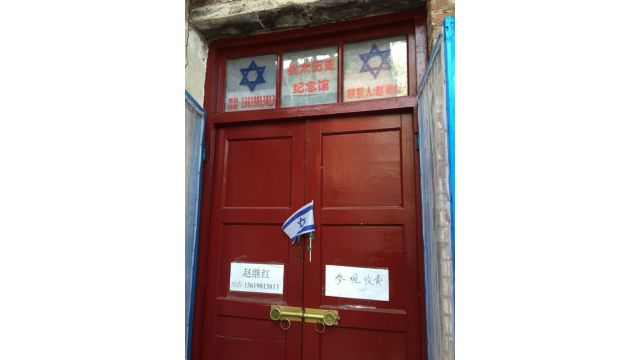
A translation of Order no. 23 follows.
***
Rules for the Implementation of the Provisions of the People’s Republic of China on the Administration of Religious Activities of Foreigners in the Territory of the People’s Republic of China
Chapter I. General Provisions
Article 1 The present Implementing Rules are formulated in accordance with the Provisions of the People’s Republic of China on the Administration of Religious Activities of Foreigners in the Territory of the People’s Republic of China and other relevant provisions.
Article 2 Foreigners referred to in these Implementing Rules mean persons who do not have Chinese nationality in accordance with the provisions of the Nationality Law of the People’s Republic of China.
Article 3. The religious activities of foreigners within the territory of China referred to in the present Implementing Rules refer to the activities of foreigners within the territory of China of holding or participating in religious ceremonies in accordance with their religious beliefs, as well as engaging in religious exchanges and communications with Chinese religious groups, religious colleges and universities, places of religious activity, and religious teaching personnel.
Article 4 China respects the freedom of religious belief of foreigners within its territory and protects the religious activities of foreigners within its territory in accordance with the law. China protects, in accordance with law, the friendly exchanges and cultural and academic exchanges between foreigners within its territory and Chinese religious circles in the field of religion.
Article 5 In conducting religious activities, foreigners shall abide by China’s laws, rules and regulations, respect the principle of the independence and autonomy of Chinese religions, and accept the administration of the Chinese Government in accordance with the law; they shall not use religion to harm China’s national interests, public interests or the lawful rights and interests of its citizens, nor shall they contravene China’s public order and morals.
Chapter II Collective Religious Activities
Article 6 Collective religious activities of foreigners within the country shall be conducted in monasteries, palaces, mosques, and churches (hereinafter referred to as “monasteries and churches”) registered as places of religious activities in accordance with the law, with the monasteries and churches providing special services; if the monasteries and churches are not able to provide special services, they may be conducted in the temporary places approved by the religious affairs departments of the provincial People’s Governments (hereinafter referred to as the “temporary locations”) for foreigners’ collective religious activities (h. The collective religious activities of foreigners within the territory referred to in these Implementing Rules refer to religious activities organized by foreigners within the territory and attended by a certain number of foreigners, excluding the cases stipulated in Article 19 of these Implementing Rules. The “certain number” stipulated in the preceding sentence shall be determined by the religious affairs department of the provincial People’s Government.
Article 7 When foreigners within the territory apply for holding collective religious activities in temples and churches or for setting up temporary locations, they shall elect three or more conveners. The conveners shall abide by China’s laws, rules and regulations, have no words or deeds hostile to China, have no bad records, be able to assume corresponding legal responsibilities, and reside legally in China. Personnel of foreign diplomatic representations and consular offices in China and other foreigners enjoying privileges and immunities are not allowed to serve as conveners.
Article 8 Where foreigners in China intend to hold collective religious activities in temples and churches, the convener shall submit a written application to the religious organization of the city (prefecture, state or league) in which the area is located. Based on the application and the situation of the local temples and churches, the religious organizations of the cities (prefectures, states and unions) in the districts concerned shall determine the temples and churches that shall provide special services for the collective religious activities of foreigners in the country, and shall report to the religious affairs departments of the People’s Governments of the cities in the districts concerned for the record. If a temple or church does not have the conditions for providing specialized services, the religious group of the city (prefecture, state or league) that has set up the district shall reply in writing to the convener. The convener may apply for the establishment of a temporary location in accordance with the provisions of these Implementing Rules.
Article 9 For the collective religious activities of foreigners within the territory of the temple and church shall sign an agreement with the convener, clear collective religious activities of the time schedule, activities, the number of activities, the number of activities, security measures, the rights and obligations of both parties, legal responsibility and other matters, and from the date of signing the agreement within ten days of the text of the agreement and the convener of the relevant information reported to the municipal People’s Government of the region of the religious affairs departments.
Article 10: When foreigners in China hold collective religious activities in a temple or church, the temple or church shall arrange for a Chinese religious teacher to preside over the activities; if it is necessary for a foreigner to preside over the activities, the temple or church shall file a record of such activities with the Religious Affairs Department of the People’s Government of the municipal district in which the temple or church is located.
Article 11 An application for the establishment of a temporary location shall have the following conditions: (1) the activities to be carried out in the temporary location shall not interfere with the normal production, study and life of the surrounding units and residents, and shall be subject to the management of the religious affairs department of the place where it is situated; (2) the convener(s) shall have the right to use the building facilities as a temporary location; (3) the building facilities to be used as a temporary location shall conform to the laws and regulations on planning, construction, fire-fighting, and building safety and be suitable for the conduct of collective religious activities.
Article 12 When applying for the establishment of a temporary location, the convener shall fill in the application form for the temporary location for collective religious activities of foreigners in the territory, and at the same time submit the following materials to the religious affairs department of the People’s Government at the provincial level of the place where the application is made for the establishment of the temporary location: (1) a written reply issued by the religious organization of the city (prefecture, state or league) in the district in which the temple or church does not have the conditions for the provision of special services; (2) a description of the basic situation of the religion; (3) a statement of the main classics of the religion; (4) the name, nationality, current place of residence, valid Chinese visa or residence permit of the foreigner who intends to participate in the collective religious activities; (5) the letter of commitment of the convener; (6) the passport of the convener, as well as the originals and photocopies of his/her residence permits; (7) the name of the person who intends to preside over the collective religious activities, and the time schedule of the collective religious activities, the way of activities, the number of activities, and safety measures, and other explanations, (8) valid documents on the right to use the building facilities as temporary location, as well as materials that the building facilities comply with the laws and regulations on planning, construction, fire protection, and building safety. The materials required to be submitted in the preceding paragraph shall be in Chinese, except for the main classics of the religion in item 3. The religious affairs department shall protect the information in the materials involving personal privacy in accordance with the law. In the letter of commitment in item 5, the conveners shall undertake to do a good job of supervising and managing the collective religious activities in the temporary location, urging the foreigners participating in the activities to abide by Chinese laws, rules and regulations, not to interfere with the normal production, study and life of the neighboring units and residents, and to accept the management of the local department of religious affairs, and to refrain from setting up religious symbols on the outside of the temporary location. All conveners shall sign the undertaking. The application form for the temporary location of collective religious activities of foreigners within the territory shall be submitted to the State Administration for Religious Affairs.
Article 13 After receiving the application materials for the establishment of a temporary location, the religious affairs department of the People’s Government at the provincial level shall consult the religious affairs department of the People’s Government at the county level, the religious affairs department of the People’s Government of the city with districts, and the religious organizations of the province, autonomous region, or municipality directly under the central government, and shall make a decision of approval or disapproval within twenty working days from the date of acceptance of the application. Within a county-level administrative area, only one temporary location is generally approved for those who believe in the same religion and are able to use the same language to conduct collective religious activities. The temporary location is valid for a maximum of two years. Those who still need to hold collective religious activities in the temporary location after the expiration of the period shall re-apply for such a temporary location thirty days prior to the expiration of the period in accordance with the provisions of Article 12 of these Implementing Rules. Aliens holding collective religious activities at a temporary location shall be managed by the religious affairs department of the People’s Government at the county level where they are located.
Article 14 Collective religious activities at a temporary location shall be managed by at least one convener on the spot. The convener shall strengthen the safety management of the collective religious activities at the temporary location, and the number of people participating in the activities shall not exceed the number of people whose activities are set forth in the instrument approving the temporary location.
Article 15 For collective religious activities in a temporary location that require the invitation of a Chinese religious teacher to preside over the activity, the convener shall propose to the religious organization of the city (prefecture, state or league) in which the temporary location is located that the religious organization arrange for a suitable religious teacher to preside over the activity.
Article 16 Except for Chinese religious clergymen who are arranged or invited to preside over religious activities in accordance with the provisions of these Implementing Rules, collective religious activities held for foreigners within the territory shall be limited to the participation of foreigners authorized to be in the territory.
Article 17 Providers of temples and churches and building facilities for temporary locations that provide exclusive services for collective religious activities of foreigners within their territories shall, if they find that the collective religious activities of foreigners within their territories are in violation of China’s laws, rules and regulations, promptly report such violations to the local department of religious affairs or other relevant departments.
Article 18 If the convener, schedule, mode of activity, or number of people in a temporary location need to be changed, an application for change shall be submitted to the religious affairs department of the provincial People’s Government thirty days prior to the proposed change, together with the relevant materials.
Article 19 Foreigners in China, with the consent of the local religious organizations, may invite Chinese religious teachers to hold religious ceremonies such as baptisms, weddings, funerals, and dojos, pujas and other religious ceremonies in accordance with religious customs.
Chapter III Religious Exchanges
Article 20 Foreigners in China shall conduct friendly exchanges in religion and cultural and academic exchanges with Chinese religious groups, religious institutions and places of religious activity through national religious groups or religious groups of provinces, autonomous regions or municipalities directly under the central government.
Article 21 Foreign religious teachers who enter China in the capacity of religious teachers may, upon the invitation of a national religious organization or a religious organization of a province, autonomous region or municipality directly under the Central Government, deliver sermons or sermons in temples and churches. Foreign religious teachers who enter the country in other capacities may preach in temples and churches upon the invitation of national religious groups or religious groups of provinces, autonomous regions or municipalities directly under the Central Government, and with the consent of the State Administration for Religious Affairs or the religious affairs department of the People’s Government at the provincial level. The invitees shall meet the following conditions: (1) they shall abide by China’s laws, rules and regulations, respect the principle of the independence and autonomy of China’s religions, and have no words or deeds hostile to China, or extremist ideological tendencies of religions; (2) the contents of the sermons they intend to give do not violate China’s laws, rules and regulations, interfere with China’s religious affairs, or contravene China’s public order and good morals.
Article 22 If a foreign religious teacher who enters China in another capacity intends to preach in a temple or church, the national religious group or the religious group of a province, autonomous region or municipality directly under the Central Government shall submit the following application materials to the State Administration for Religious Affairs or the religious affairs department of the People’s Government at the provincial level, respectively: (1) a letter of application containing the reasons for inviting the person to give a lecture or sermon, as well as the situation of the temple or church where the lecture or sermon is to be arranged; (2) information about the background of the person invited, his or her religion, and the content of the lecture. (ii) the relevant background of the invitee, his or her religious teaching status, description of his or her entry status, and the main content of the proposed sermon; (iii) the written consent of the temple or church where the sermon is to be arranged. The State Administration for Religious Affairs and the religious affairs department of the provincial People’s Government shall, within twenty working days from the date of acceptance of the application, make a decision of approval or disapproval.
Article 23 A foreigner who carries out religious cultural and academic exchange activities with Chinese religious groups, religious colleges and universities, and places of religious activity, and who brings into the country more than a reasonable amount of religious prints, religious audiovisual products and other religious articles for his own use, shall meet the following conditions: (1) the religious prints, religious audiovisual products and other religious articles he brings in do not contain any material that jeopardizes China’s national security, damages the public interest or contravenes the independent and autonomous nature of China’s religions; (2) The receiving unit of the religious printed matter, religious audio-visual products and other religious articles is a religious group, a religious college or a place for religious activities; (3) The religious printed matter, religious audio-visual products and other religious articles are in line with the needs of the religious and cultural academic exchange programs or agreements; (4) They are agreed upon by the religious groups of the national level, or by the provinces; (5) There should be the consent of the national religious organization or the religious organization of a province, autonomous region or municipality directly under the central government. The scope of religious printed matter and religious audio-visual products for self-use and in reasonable quantities refers to less than ten copies per person for single-volume publications, and less than three sets per person for complete sets of publications. The scope of self-use and reasonable quantities of other religious articles means less than three basic units of each kind. Dispersed religious printed materials as well as religious audio-visual products are prohibited from entering the country.
Article 24 If a foreigner brings into the country religious printed materials, religious audio-visual products and other religious articles in excess of reasonable quantities for his or her own use, the receiving unit shall apply to the religious affairs department of the People’s Government at the provincial level of the place where he is located by submitting the following materials: (1) an application form, which shall include an introduction to the foreigner and to the academic exchanges of religion and culture, and a catalog, samples, quantities and other materials of the religious printed materials, religious audio-visual products and other religious articles being brought in; (2) The text of the religious culture and academic exchanges program or the agreement; (3) Written materials should be approved by the national religious association or the religious association of a province, autonomous region or municipality directly under the central government. If the receiving organization is a national religious organization or a religious institution established by it, the national religious organization shall submit the application materials to the State Administration for Religious Affairs. The State Administration for Religious Affairs and the religious affairs department of the provincial People’s Government shall, within twenty working days from the date of acceptance of the application, make a decision of approval or disapproval.
Article 25 When a foreigner is authorized to bring into the country a reasonable amount of religious printed materials, religious audiovisual products, and other religious articles that exceed the amount for his or her own personal use, he or she shall make a declaration to the Customs, which shall examine and release them on the basis of an approval document issued by the State Administration for Religious Affairs or the religious affairs department of the People’s Government at the provincial level.
Article 26 Foreign organizations or individuals recruiting students within the territory of China for the purpose of training religious teachers shall be arranged and selected by national religious groups or religious groups of provinces, autonomous regions or municipalities directly under the Central Government in accordance with their needs. Foreign organizations or individuals may not, without authorization, recruit students in China for the purpose of training religious teachers. Foreigners who come to China to study in religious colleges and universities shall obtain the consent of a national religious association or a religious association of a province, autonomous region, or municipality directly under the Central Government.
Article 27 Foreigners may be employed by Chinese religious colleges and universities in accordance with legal procedures and may give lectures as foreign professionals in religious colleges and universities.
Article 28 Foreign religious organizations and their members that do not have a corresponding legitimate Chinese religious organization within the territory of China shall meet the following conditions if they wish to have dealings with Chinese government departments or religious groups, religious colleges and universities, or places of religious activity: (1) they are friendly to China; (2) they have a legitimate status or identity in the country (region) in which they are located; (3) they have no adverse records; (4) they respect the principle of independent and autonomous operation of Chinese religions, and the proposed activities within the territory of China are to be carried out in accordance with the principle of independence and autonomy of Chinese religions; (5) The activities to be carried out in China do not violate Chinese laws, rules and regulations. The Chinese unit shall submit an application to the State Administration for Religious Affairs with the following materials: (1) a letter of application, including the purpose, matters, time, place and number of people to be involved in the activities; (2) the basic information about the foreign religious organization, its members and the religion, as well as a statement that the foreign religious organization and its members satisfy the conditions set out in the preceding paragraph; and (3) the basic information about the Chinese unit and its main participants. The State Administration for Religious Affairs shall, within twenty working days from the date of acceptance of the application, make a decision to approve or disapprove it.
Article 29 Foreigners in China may not engage in the following activities involving religion: (1) interfering in and dominating the affairs of Chinese religious groups, religious institutions and places of religious activity, or interfering in the identification and management of religious clergy; (2) setting up religious organizations, religious offices, places of religious activity, or religious institutions; (3) promoting religious extremist ideology, supporting or financing religious extremism and illegal religious activities, or using religion to undermine China’s national unity or the rule of law, religious harmony and social stability; (4) Conducting unauthorized sermons, sermonettes or collective religious activities; (5) Recruiting religious followers and appointing religious clerics among Chinese nationals; (6) Using religion to carry out activities that impede the implementation of China’s systems of justice, education, marriage, social administration and so on; (7) Producing or selling religious books, religious audio or video products, religious electronic publications and other religious articles, or distributing religious propaganda; (8) Accepting donations of a religious nature from Chinese organizations and citizens; (9) Organizing and carrying out religious education and training; (10) Using the Internet to carry out unlawful religious activities; and (11) Other unlawful activities involving religion.
Chapter IV Legal Responsibility
Article 30 Where a public official abuses his or her authority, neglects his or her duties, or engages in malpractice for personal gain in the administration of religious activities of foreigners within the country, he or she shall be punished according to the law; where a crime is constituted, he or she shall be held criminally liable according to the law.
Article 31 Foreigners within the country who set up unauthorized temporary locations for the holding of collective religious activities shall be dealt with in accordance with the second paragraph of Article 69 of the Regulations on Religious Affairs.
Article 32 If the holding of collective religious activities by foreigners within the territory of China in monasteries, churches or temporary locations violates the provisions of these Implementing Rules or the content of the undertaking, the department of religious affairs shall order rectification; if the convener is responsible, it shall order the convener to be removed; if the circumstances are serious, it shall order the monasteries or churches to stop providing special services for the collective religious activities of foreigners, or order the temporary locations to cease their activities.
Article 33 If a Chinese religious group, religious institution or place of religious activity violates the provisions of these Implementing Rules, it shall be dealt with in accordance with Article 65 of the Regulations on Religious Affairs. Chinese religious teachers who violate the provisions of these Implementing Rules shall be dealt with in accordance with Article 73 of the Regulations on Religious Affairs.
Article 34 Anyone who provides conditions for the illegal religious activities of foreigners in China shall be dealt with in accordance with Article 71 of the Regulations on Religious Affairs.
Article 35 Any violation of other provisions of these Implementing Rules shall be dealt with by the religious affairs department and other relevant departments in accordance with the Provisions of the People’s Republic of China on the Administration of Religious Activities of Foreigners within the Territory of the People’s Republic of China and the Regulations on Religious Affairs. Violation of the provisions of these Implementing Rules, while violating other laws and regulations, shall be dealt with by the relevant departments in accordance with the law; if it constitutes a crime, it shall be investigated for criminal responsibility.
Chapter V Supplementary Provisions
Article 36 Within the administrative area of a municipality directly under the central government, the duties of the religious organizations of cities (prefectures, states and unions) with districts as stipulated in these Implementing Rules shall be performed by the religious organizations of the districts (counties) under the municipality directly under the central government; and the duties of the religious affairs departments of the People’s Governments at the county level and of the People’s Governments of the cities with districts shall be performed by the religious affairs departments of the People’s Governments of the districts (counties) under the municipality directly under the central government.
Article 37 Where there is no relevant religious organization in a county (city, district or banner), the corresponding duties stipulated in these Implementing Rules shall be performed by the religious organization of the city (prefecture, state or league) in which the district is located. Where there are no relevant religious organizations in the cities (prefectures, prefectures, unions) and municipalities directly under the central government, the corresponding duties shall be performed by the religious organizations in the provinces, autonomous regions and municipalities directly under the central government. Where there is no relevant religious organization in a province, autonomous region or municipality directly under the central government, the corresponding duties are performed by a national religious organization.
Article 38 The present Implementing Rules shall come into force on May 1, 2025.
Source: Bitter Winter




